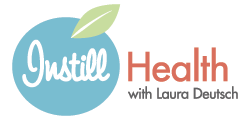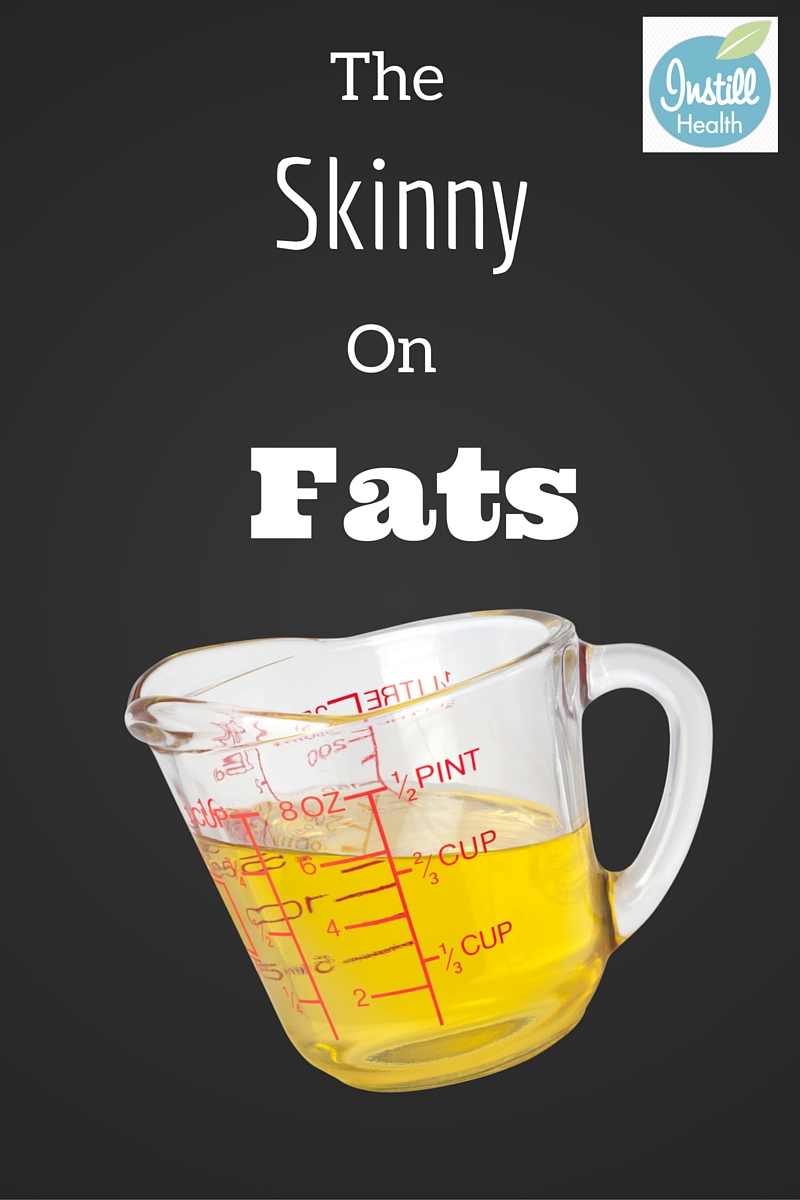
I’m having deja vu. There are so many debated issues when it comes to nutrition and it can be so exhausting! Just recently I discussed the varying opinions on soy because I wanted my questions answered once and for all. Well, now I feel the same way about fats and oils. What is the deal? Are saturated fats bad or not? What about canola oil? Vegetable oils?
Once again I wanted to clear up my confusion and set out to do my due diligence. I have to say that there is enough material on the topic to write a book!
As you can imagine, there are many varying opinions, so I can’t present you with definitive right or wrong conclusions.
That said, just like in my soy findings, there are certain themes that are repeatedly confirmed, and THESE are what I am going to talk about in today’s post.
1) Trans Fats
There is no debate over trans fats – they are definitely unhealthy. No ifs ands or buts. Trans fat is made from oils through an industrial processing method called partial hydrogenation. This adds hydrogen to liquid vegetable oil to make it more solid which prevents it from going rancid .
Trans fat raises your LDL (lousy cholesterol), and lowers your HDL (healthy cholesterol). Trans fat is listed as ‘partially hydrogenated oil’ so make sure to read package labels and put any products back containing that ingredient. Trans fat is found in fried and processed foods and commercial baked goods. In 2013, the FDA literally deemed trans fats unsafe. So no doubt – stay away!
2) Saturated Fats
Saturated fats consist mainly of foods that come from animals i.e. meat, cheese, milk, butter, cream cheese, etc. Here is where we start to get into debatable territory. For decades, saturated fats were thought to raise the lousy cholesterol (LDL) and lead to heart disease.
Recently there have been studies that have shown that saturated fats are NOT linked to heart disease. That said, the evidence is still not compelling enough to have the AHA (American Heart Association) change its guidelines. So just because some people are giving saturated fats the green light does not mean I will start loading up on my meat and cheese consumption. Whenever the benefits of certain foods are debated, I feel it is best to eat them in moderation.
Coconut oil is a saturated fat and is all the rage right now. Many experts think that coconut oil is a ‘good’ saturated fat because its composition is different than the others. Roughly half of the fat found in coconut oil is lauric acid which raises levels of HDL (h for healthy) cholesterol. It is also easily digestible and can be converted to energy very quickly. Based on the research I’ve done, I personally feel that coconut oil is a healthier option to butter, and I frequently use it as a replacement when I bake. But I want to reiterate this is my opinion, not a fact.
3) Unsaturated Fats
Unsaturated fats are commonly agreed upon as being ‘the good fats’, meaning they raise HDL levels, the healthy cholesterol. Unsaturated fats are plant based and are broken down into two kinds, monounsaturated and polyunsaturated.
Monounsaturated fats are liquid at room temperature but become partially solid in the refrigerator. Common sources of monosaturated fats are olive oil, peanut oil, canola oil, safflower oil and sunflower oil. Experts agree these are heart healthy oils. I cook with olive oil pretty much every day, so I’m glad that experts are in agreement about this!
BUT…canola oil has lately been a topic of debate. Although it is an unsaturated fat, there are many people who feel that we should stay away from it.
Canola oil comes from rapeseeds that have been genetically modified. The oil is extracted by using a toxic solvent called hethane. Then it goes through a highly unnatural processing method using high heat as well as deodorizers to remove any smells. AND some trans fats are made in the process, so sometimes there can be traces of trans fats in canola oils. Doesn’t sound too good.
That being said, it IS agreed upon that canola oil that is cold pressed and organic does NOT go through this process, so if you want to use it, you should look for those qualifications.
B) Polyunsaturated fats are always liquids. Common sources of polyunsaturated fats are soybean oil, corn oil, and sunflower oil.
It’s important to note that ANY oil (including all of the polyunsaturated oils listed above AND ALL VEGETABLE OILS) is considered healthy ONLY if it comes from non genetically modified sources and has not been hydrogenated (i.e. highly processed). There are so many genetically modified crops today (like corn and soy), so you should strongly consider using organic if you cook with them.
Bottom line: Processed anything is bad. Hydrogenated anything is bad. Genetically modified anything is bad.
So make sure to READ THE LABELS of ANY oil (or food for that matter) you purchase and make SURE the following 2 credentials are met:
- You DON’T see HYDROGENATED listed anywhere in the ingredients.
- You DO see ‘Non GMO’ and/or organic somewhere on the packaging.
While doing my research, I came upon a quote by Dr. Cate Shanahan which really sums up everything perfectly:
When in doubt, keep this golden rule in mind: “Nature doesn’t make bad fats, factories do!”
And there you have it – the Cliffs Notes skinny on fat!
If you enjoyed this article and want to get great tips like these delivered right to your inbox, please click here and enter your email to begin receiving weekly updates from Instill Health. Also, be sure to like us on facebook because you will find amazing recipes there that are not posted on the Instill Health website.

